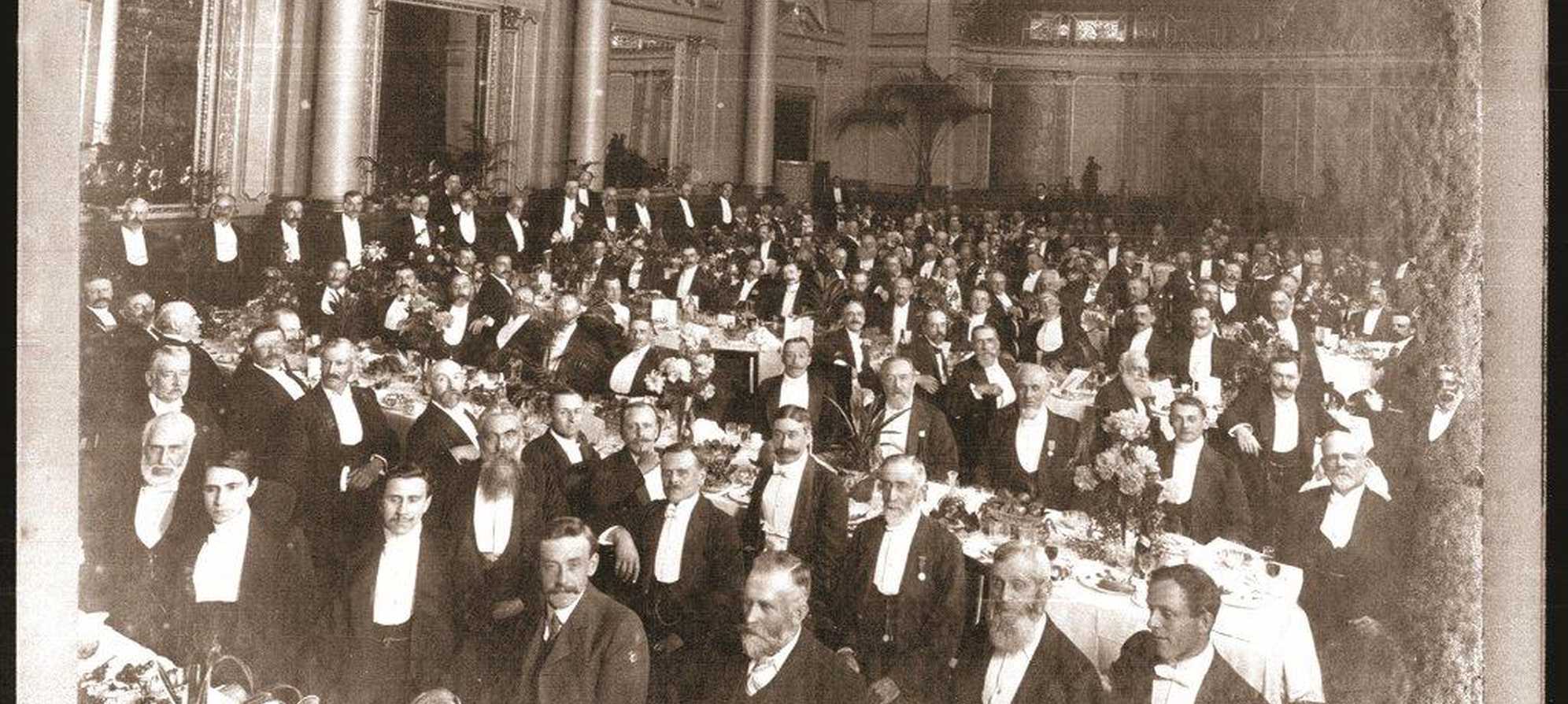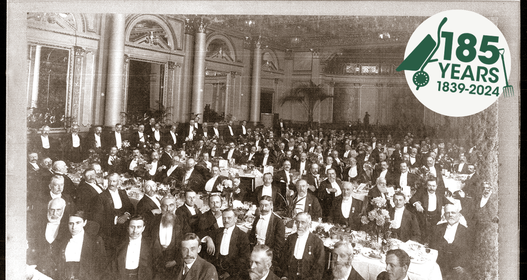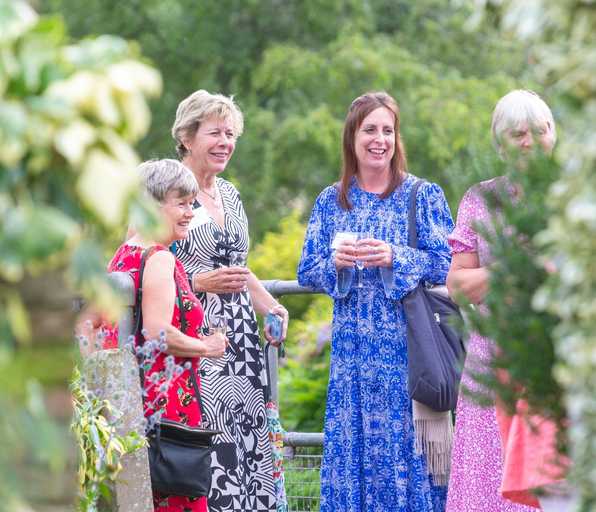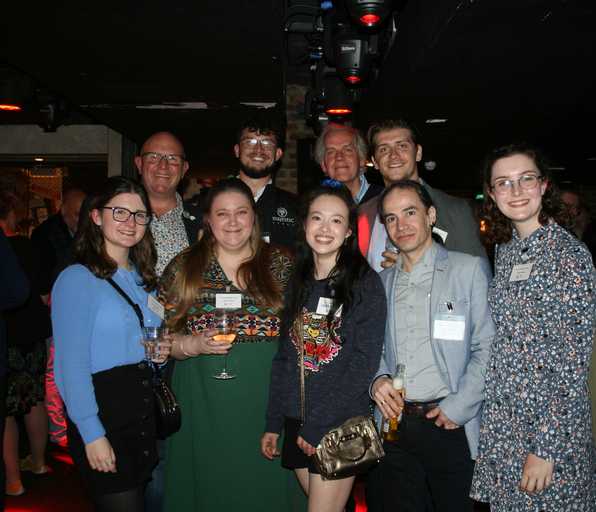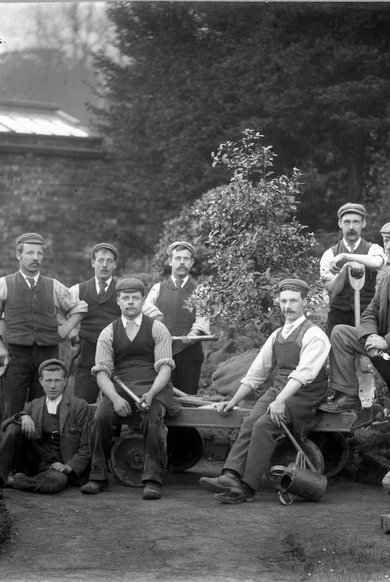
Our history
The Gardeners’ Benevolent Institution (now Perennial) was founded on 17 January 1839 at an annual dinner for ‘nurserymen, florists and amateurs’, held in the Crown and Anchor Tavern, just off the Strand on Arundel Street, London.
The pub no longer stands (now offices) but is a venue with a long history of hosting public and political meetings, perhaps due to its size and central London location.
From the outset, the Institution aimed to provide a source of income for gardeners, typically Head Gardeners, in retirement, recognising that those who had worked all their lives as low-paid workers on estates and public gardens had no means of looking after themselves in their later years and often lost their tied property on retirement.
By the mid 1840s it was already having a major impact and an annual fundraising dinner was established, to which ‘celebrities’ of the day were invited to attend to encourage donations and rally support from landed gentry and royalty who employed large numbers of gardeners. Robert Peel and Charles Dickens were numbered among the keynote speakers of the period, the latter famously saying in his opening address of 1852:

“…His gains are not great and knows gold and silver more as being the colours of fruit and flowers than by their presence in his pockets. He is subjected to that kind of labour which renders him peculiarly liable to infirmity and when old age comes upon him, the gardener is, of all men perhaps, best able to appreciate the benefits of the Institution…”
Charles Dickens
The Institution remained a pension granting body for 100 years until state pensions were introduced in the early 20th Century. At this time the focus of the charity shifted to providing accommodation for ageing gardeners, running a care home and retirement housing. Financial assistance broadened to include emergency grants for those with disabilities and help extended to those working in other branches of horticulture, which were growing in importance. Now Perennial’s help extends to landscapers, gardeners, designers, grounds maintenance staff, greenkeepers, tree surgeons, groundsmen, British seed and turf growers, those involved in intensive production horticulture, parks and gardens staff and many, many more.
Now over 180, Perennial is as needed as it ever was. The financial and social pressures on those working in and retired from horticulture are acute, particularly in the economic downturn, as horticulture professions are still relatively low paid and just as physically gruelling. Perennial is a ‘lifeline’ for many, providing free and confidential advice and financial assistance to over 1,600 people every year.
Perennial: A potted timeline
1839
The Gardeners’ Benevolent Institution is founded on 17th January at an inaugural dinner for gardeners, nurserymen and amateurs at the Crown and Anchor Tavern, just off The Strand in London.
1840
Three retired horticulturists share £75 as the first instalment of a pension – the first granted by the Institution.
1851
Renamed The Gardeners’ Royal Benevolent Institution, an honour granted personally by Queen Victoria.
1852
Charles Dickens presides over the ninth Annual Festival Dinner, a fundraising event which drew the attention and support of high society.
1867
Sir Robert Peel, founder of the modern police force, presides over the Annual Festival Dinner.
1889
154 beneficiaries are now receiving a pension, in large part thanks to the tireless work of the Institution’s Secretary, Edward Cutler. He was not a horticulturist, but a clerk in the Westminster Fire Office, who devoted his spare time to raising money and awareness for the Institution.
A target of £3,000 was set this year to give pensions to deserving cases, rather than by election.
1891
Edward Cutler dies, leaving a legacy of huge growth in the Institution, having increased the number of pensioners from four to 154. Income now stood at nearly £7,000 and the total sum invested during his tenure was a staggering £23,000 (over £2.2m today).
1939
260 pensioners are now receiving a regular pension
1949
First Christmas cards are sold; the first radio fundraising appeal is made by Fred Streeter and Charles Curtis, Chairman of the Institution and celebrated gardener and editor, campaigned for a residential home for retired gardeners to be opened.
1952
A residential home for retired gardeners is opened at Horton, Berkshire and an appeal for £20,000 appeared in The Times.
1955
A further fundraising appeal for £20,000 was launched by Sir Seymour Howard, originally a grocer’s boy who served as Lord Mayor of London in 1954 and was created a baronet in the same year. The objective was to abolish the pensioners’ waiting list and to build a hospital wing at the home in Horton.
1960
Renamed The Gardeners’ Royal Benevolent Society; five bungalows were donated to the Society in Barton, Cambridgeshire, to be used as retirement accommodation.
Sir Edward Howard, son of Sir Seymour Howard, elected as Treasurer. He went on to become Chairman and in 1971 became Lord Mayor of London.
1967
Two new bungalows are completed at Barton, now a complex of retirement accommodation near Cambridge.
1989
150th anniversary celebrations include a reception at the Mansion House by the City of London with the patron Her Majesty Queen Elizabeth the Queen Mother in attendance.
1994
York Gate garden near Leeds bequeathed to the Society. It continues to be thought of as one of the best small gardens in Britain.
2000
The Gardeners’ Royal Benevolent Society now broadens its activities to help young people and anyone in horticulture, from landscapers to arborists and garden designers.
2003
The Gardeners’ Royal Benevolent Society adopts the name Perennial.
2004
Alan Titchmarsh VMH, MBE becomes President.
2008
Perennial’s national debt advice line is launched
2010
The Royal Fund for Gardeners’ Children merges with Perennial.
2013
Fullers Mill Garden in Suffolk is gifted to Perennial, although the garden continues to be fully funded by its creator Bernard Tickner.
2014
Perennial celebrates 175 years of helping horticulturists with a party attended by Patron HRH Princess Alexandra, President Alan Titchmarsh OBE and Chair Sir Roger Singleton.
2019
Perennial celebrates 180th anniversary!
2021
Our inaugural Health and Wellbeing Survey was launched – the biggest for the UK’s horticultural industry
2022
An industry-wide Mental Health First Aiders network was established in partnership with MHFA England to help create a culture of positive mental health across the community.
2024
Perennial celebrates 185th anniversary!


